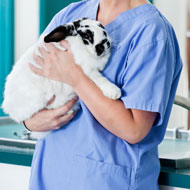RCVS makes changes to Professional Development Phase

The overall purpose and aims of the PDP were welcomed, but the research highlighted some issues with the scheme in its current format.
A series of short-term changes have been made to the Professional Development Phase (PDP), following research by the RCVS and BSAVA.
The PDP aims to help new veterinary graduates make the transition into practice.
Jointly-funded research, carried out by the Work Psychology Group, assessed the scheme’s effectiveness using online surveys, telephone interviews and a focus group with recent graduates and practices that employ recent graduates.
Whilst the overall purpose and aims of the PDP were welcomed by graduates, employers and other stakeholders, the research highlighted some issues with the scheme in its current format.
Comments included concerns about it being a ‘tick-box’ or ‘check list’ exercise, in which the number of tasks completed was rated more highly than qualitative aspects including confidence and progression. There was also felt to be a lack of focus on the development of non-clinical skills.
The group came up with a number of recommendations that were approved by the PDP Working Group in December 2017, followed by the Education Committee in February 2018. Some of these recommendations (below) can be adopted in the short-term, while further recommendations are currently being considered as part of the Graduate Outcomes Project.
Sheldon Middleton, chair of the BSAVA’s PDP committee, said: “We’re really pleased with the start we’ve made to help graduates and their employers take positive steps to tackle the challenges of transitioning between university and practice, and we have a plan to improve further, working with RCVS to really make a difference.
“We are also pleased to have this opportunity to reflect on such comprehensive feedback after our first year, this empirical evidence from those involved is invaluable, we have learnt lessons and highlighted areas for further development, so now we’re looking ahead to make sure we implement our improvement plan.”
Short-term recommendations include:
▪ developing guidance to support graduates and employers through the process of reflection on their progress
▪ considering how to build opportunities to capture and record reflective learning into the PDP
▪ making it a requirement of the PDP that every graduate who is participating in the PDP has a named workplace mentor assigned to them, as well as a Postgraduate Dean
▪ asking assigned mentors to sign-off their graduate’s progress on the PDP on a regular basis (eg every other month) and write a short commentary on the graduate’s progress on a six-monthly or annual basis
▪ sharing resources between the BSAVA and RCVS looking at where further resources can be developed
▪ gaining feedback from other professions as well as the veterinary schools regarding platforms that have been used for similar purposes and have been successful. This process would consider the key requirements of a PDP platform and ensure that the right questions are asked to gain feedback.



 The latest
The latest